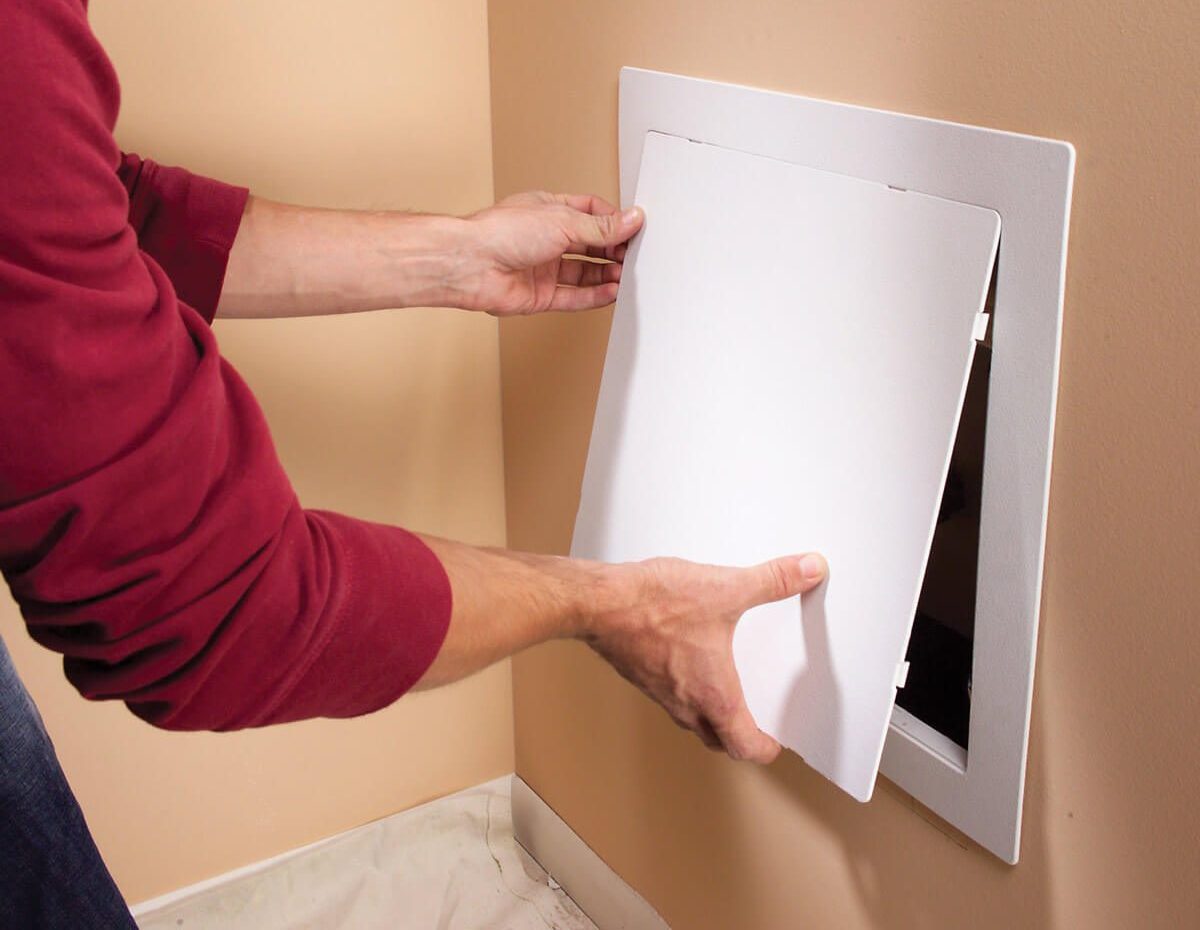Picture this: your pipes are leaking, and you must shut off the water before you can start the repairs. Your shut-off valves won’t be out in the open, as they will be exposed to the elements and may even get tampered with by nefarious people. Thankfully, you installed an access panel.
Access panels provide the perfect solution between tucking away your utilities while allowing easy access for you or your maintenance crew. These panels also offer a quick and cost-effective solution to various jobs, and you’ll learn more about them today.
Why It’s Necessary
Utility lines, such as water pipes, electrical, and internet lines, are essential in your building. Firstly, these utilities simply cannot remain in the open because they look messy and unorganized. Additionally, you’ll need some way to protect these utilities and prevent you from accidentally breaking something.
To solve this, hiding these utilities behind walls, ceilings, and floors are some of the common tactics you can use to tidy up your buildings. You’ll also need to find ways to allow easy maintenance, so installing access doors for walls, ceilings, and floors is vital.
Types of Access Doors
Various access doors are available for you on the market, and you’ll see some examples below.
-
Floor Panels
Gas lines are typically stored underground, so you’ll need a floor access panel to reach these utilities. However, you’ll need an access door that can withstand the weight of people walking over it.
Thankfully, access doors for floor applications are available. Some are even flood-tight and gas-tight, so you won’t have to worry about water ingress during the heaviest rainstorms and have peace of mind knowing that you have suitable access doors sealing your gas lines.
-
Heavy Duty
You may be dealing with a project with a lot of foot traffic. In this case, general-purpose heavy-duty access panels will do the trick.
These access doors are perfect for hiding larger equipment, such as the primary ventilation system or other forms of larger machinery. The ruggedness of this access door is ideal for protecting sensitive appliances from unauthorized access or environmental damage.
-
Insulated
Energy efficiency is a priority that you may have for your building, and introducing a regular access door wouldn’t be appropriate. You can choose insulated access doors for your interiors that also feature rubber gaskets.
These access doors ensure heating/cooling doesn’t leak into areas that don’t need it. Another benefit to these access doors is that moisture doesn’t build up behind walls and ceilings, ensuring that you stay healthy thanks to the high air quality.
-
Recessed
If you’ve heavily invested in the interior aesthetics of your building, it’s essential to keep it that way while still having the ability to access your utility lines. Recessed access doors have you covered in this case.
Recessed access panels have quite a variety to them. For example, you can use one suited for drywall so that only the most minor seam remains. If you’re looking to remove the seam altogether, you can choose to install flangeless access doors.
-
Ceilings
Ceilings are usually acoustically treated to absorb sounds and prevent echoing. Because of this, you’ll typically see ceilings using gypsum or drywall. If acoustics aren’t a concern, perhaps your client needs an access door that’ll fit into a T-Bar grid ceiling.
With your client’s wide range of requirements, you’ll find an access door that can cater to these requirements. Keep your ceilings looking neat and adequately protect any crawlspaces with the right access panel of your choice.
Access Panels Are Important
You’ve read a variety of uses for access doors. The right access panel empowers you to keep your establishment clean and running for a long time. With so many models and sizes available, finding one that’ll fit your niche won’t be an issue.

